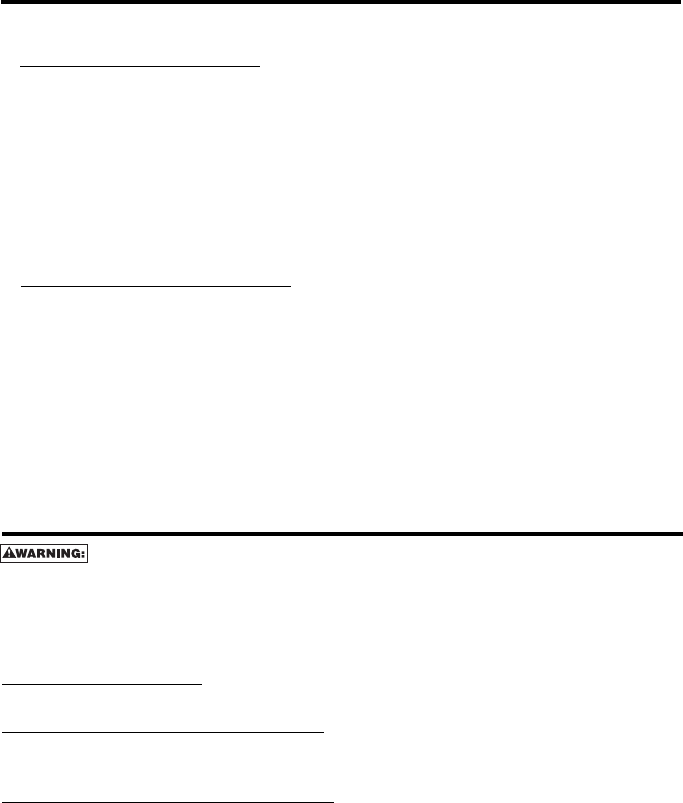
-11-
TOOL OPERATION CHECK
C
AUTION: Remove all fasteners from tool before performing tool operation check.
1. CONTACT TRIP OPERATION:
A. With finger off the trigger, press the contact trip against the work surface.
THETOOL MUST NOT CYCLE.
B. Hold the tool off the work surface, and pull the trigger.
THETOOL MUST NOT CYCLE.
C. With the tool off the work surface, pull the trigger. Press the contact trip against the work surface.
THETOOL MUST CYCLE.
D. Without touching the trigger, press the contact trip against the work surface,
then pull the trigger.
T
HETOOL MUST CYCLE.
2. SEQUENTIAL TRIP OPERATION:
A. Press the contact trip against the work surface, without touching the trigger.
THETOOL MUST NOT CYCLE.
B. Hold the tool off the work surface and pull the trigger.
THETOOL MUST NOT CYCLE.
Release the trigger. The trigger must return to the trigger stop on the frame.
C. Pull the trigger and press the contact trip against the work surface.
THETOOL MUST NOT CYCLE.
D. With finger off the trigger, press the contact trip against the work surface. Pull the trigger.
THETOOL MUST CYCLE.
MAINTAINING THE PNEUMATIC TOOL
When working on air tools, note the warnings in this manual and use extra care evaluating
problem tools.
CAUTION: Pusher spring (constant force spring). Caution must be used when working with the spring
assembly.The spring is wrapped around, but not attached to, a roller. If the spring is extended beyond
its length, the end will come off the roller and the spring will roll up with a snap, with a chance of
pinching your hand. Also the edges of the spring are very thin and could cut. Care must also be taken
to insure no permanent kinks are put in the spring as this will reduce the springs force.
REPLACEMENT PARTS:
Use only genuine BOSTITCH replacement parts. Do not use modified parts.
ASSEMBLY PROCEDURE FOR SEALS:
When repairing a tool, make sure the internal parts are clean and lubricated. Use Parker “O”-LUBE,
Magnalube, or equivalent on all “O”-rings. Coat each “O”-ring with lubricant before assembling.
AIR SUPPLY-PRESSURE AND VOLUME:
Air volume is as important as air pressure. The air volume supplied to the tool may be inadequate because of
undersize fittings and hoses, or from the effects of dirt and water in the system. Restricted air flow will prevent
the tool from receiving an adequate volume of air, even though the pressure reading is high.The results will be
slow operation, misfeeds or reduced driving power. Before evaluating tool problems for these symptoms, trace
the air supply from the tool to the supply source for restrictive connectors, low points containing water and
anything else that would prevent full volume flow of air to the tool.















